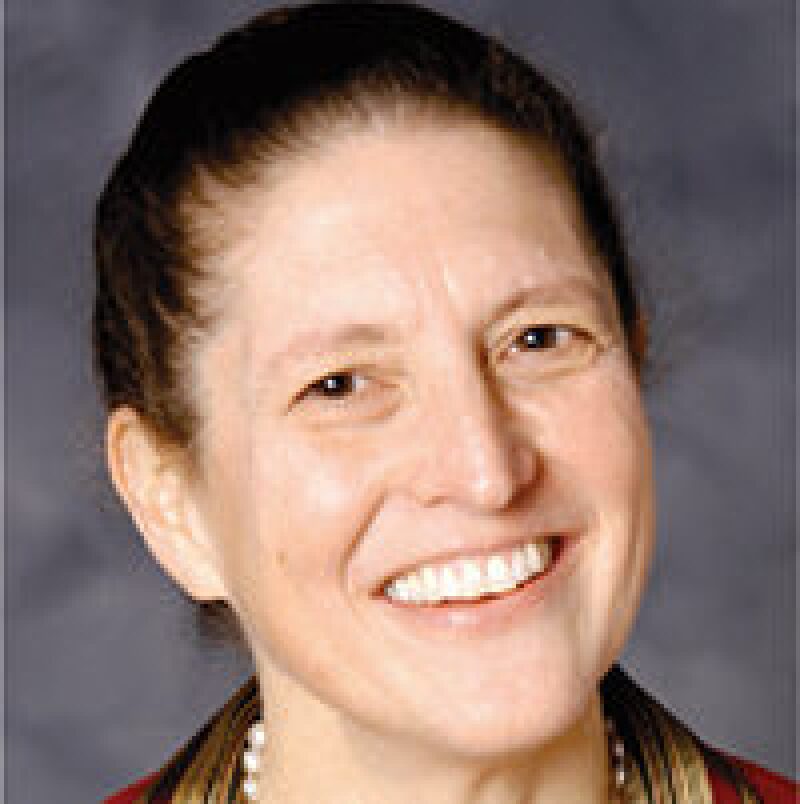
I love your theme for this issue of The Way Ahead, “Alternative careers and crossing disciplines in the E&P industry.” I believe that one of the keys to both SPE’s success and my own personal career has been stretching the definitions of technical discipline. You are what you do, not what it says on your diploma. Similarly, while SPE officially stands for Society of Petroleum Engineers, many leaders of the society have long taken the approach that it really stands for Society of Professionals in Energy. As we look to the future, we will continue to build on SPE’s many strengths, one of which has been continually stretching our technical boundaries.
For many years, we have focused on integration of the upstream disciplines: geology, geophysics, and engineering. I first became active in SPE as a member of the geosciences subcommittee of the program committee for the Annual Technical Conference and Exhibition. We have made great progress and reaped huge benefits by breaking down the barriers between the upstream disciplines. Now, as our industry takes on the challenges of heavier oil, resources in ultradeep water, and stranded natural gas, we should reach out to facilitate more interaction with the downstream technologies to explore more-creative methods for field upgrading of heavy oil, subsea processing, and natural-gas conversion and transportation. We should lead the way in bridging the boundary between the upstream and downstream. SPE is about bringing people together to create new technologies and enhance the value of our industry to society.
SPE has held many successful programs in the areas of health, safety, and the environment (HSE). Building on this, I would like to see greater integration of the experts in those disciplines and the SPE membership as a whole. After the President’s Luncheon at the 2005 Annual Technical Conference and Exhibition in Dallas, a member pointed out to me that there had been only one session on HSE at that meeting and volunteered to help change the situation. We should have more sessions on these topics at our general meetings and structure some of the sessions to attract nonspecialists. Also, we need to address more than the traditional HSE topics. To encourage expansion of our technical scope, the title of the SPE Board of Directors Technical Director for Health, Safety, and Environment was changed recently to Director of Health, Safety, Security, Environment, and Social Responsibility. Our industry is under constant public scrutiny. We all must be able to explain how use of fossil fuels compares with alternatives and the care our industry takes to protect our planet and its residents of all species, not just to protect our professional self-esteem but also to maintain our industry’s ability to operate.
For me, SPE has never been about having things done for you, but rather having the structure, connections, and resources so that members can band together and create the programs they want. I see The Way Ahead as a manifestation of this value system. SPE provided a platform on which the young members could create a magazine for themselves. Along these same lines, I encourage young professionals to work with other members of all ages to create more programs for themselves and their peer groups. In particular, I encourage you to become involved with efforts on reserves and resources education, as well as on public energy education. Both of these topics will have a large impact on your future because they influence the sense of urgency of governments, other industries (such as the auto industry), and the public for finding alternatives to hydrocarbons.
In 2005, the SPE Board chartered a new committee charged with developing educational programs on reserves and resources. Michael Black, a former SPE Board member, has agreed to chair the Reserves and Resources Education Committee. I urge young professionals to form a group to work with that committee to develop education programs tailored for your interests. Some young professionals may wish to consider a career specializing in reserves and resources evaluation, which combines reservoir engineering, the geosciences, and many aspects of economics and project development and commercialization. Developing educational programs is a great way to explore your interest and aptitude for a career in this specialty.
The new Long Range Plan for SPE promotes the vision that:
- Petroleum professionals are widely regarded by society as ethical, competent, and environmentally sensitive, and as providing a vital service to society.
- Students at all levels are attracted to a career in the petroleum industry.
- Petroleum professionals have a clear understanding of and can articulate the concepts of social responsibility.
- Petroleum professionals participate in public discussion to understand community and government concerns and to share their knowledge of the industry.
- SPE is a highly credible source of educational resources about the petroleum industry.
Responsibility for translating the vision into reality is assigned to the SPE Board Committee on Education and Professional Activities, which is chaired by Ganesh Thakur. If young members would like to join this effort either as individuals or as a YEPP group, I urge them to contact Ganesh. Another resource is John Tobin, an SPE Distinguished Lecturer on industry image. John is actively involved with many groups working on energy education and public outreach. John has tremendous experience, enthusiasm, and energy for these efforts and can be a great focal point in getting things started. If these issues excite you, don’t just sit there—SPE will help you develop, and participate in, a meaningful program.
When it comes to alternative careers and crossing disciplines, do not let labels and artificial boundaries limit your interests and contributions. The key to a satisfying career is staying excited about what you do. In closing, I urge you to stand tall, speak up, and dream large! Don’t wait for the things you want to come your way—use SPE’s framework and resources to make them happen.
Make a difference!
Eve Sprunt

